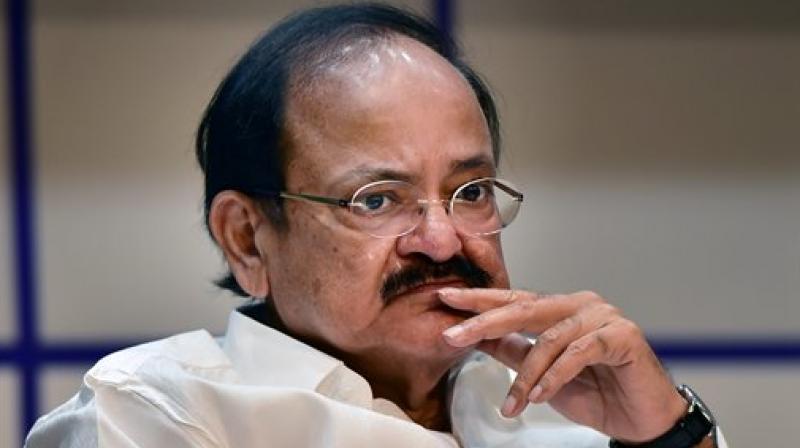Emergency was bad, and things have for the better

Hyderabad: If it was state repression during the Emergency, brutal groups within civil society are making the situation more dangerous than in 1975, said Prof, G. Haragopal, rights activist and retired professor of the Hyderabad Central University. Prof Hara-gopal was arrested during the Emergency that was imposed on June 25, 42 years ago.
“Most students who participated in the protests against the Emergency are senior citizens now. They will have to educate the younger generation. We have to prepare the youth to prevent any Emergency that may occur in future. Emergency gave us a legacy on how to fight for democracy and preserve democratic values,” he said.
Prof. Haragopal said, “Emergency may not come again but at that time it was only state repression. This time within civil society there are more brutal groups, so this time it will be dangerous than 1975. For me, Emergency is not over as the nation has become ungovernable. We used to face the threat of being picked up at any time under the Emergency. The kind of uncertainty which we had during Emergency, the trauma still passes through my mind.”
He pointed out that univesities were afraid of inviting scholars. “A lecturer has been arrested for giving a lecture at Jawaharlal Nehru University. It is clearly visible that the university is no longer a place for the battle of ideas, it’s only the ideas of the state and the ruling party,” he said.
“At the Hyderabad Central University, where I spent decades, a Vice-Chancellor issues an order that no meeting can take place on the campus, which is shocking. It is becoming very frightening, Emergency is coming back in some way”, he said.
Union minister M. Venkaiah Naidu, was jailed for 17 months during Emergency as a member of the ABVP.
“Emergency made me a strong leader and what I am today. I used to throw pamplets in cinema halls and write slogans on the walls of the Congress party offices against the Emergency. Due to censorship, even the media write against the Emer-gency,” he wrote.
Mr Kambhampati H. AP BJP president and MP, was a student in Andhra University during the Emergency and was jailed for six months while participated in protests launched by Jayaprakash Narayan.
He said, “It was big threat to democracy, newspapers were censored. Any news against the government was not published. We used to wonder whether democracy would ever return.”
“There was no visible opposition, people were scared to speak against the government, no student dared to come out opposing the Emergency, no political meetings were held. Some people also said that Emergency was good for India as there was a lot of discipline and trains were running on time,” he said.
Fighting the State.. and the family
Ms Gita Ramaswamy, an activist from the city who went underground during the Emergency, recalled the black days on Sunday, its 42nd anniversary.
“The 18 months of Emergency was the darkest period for us. Life changed overnight; while the boys took up rooms, we girls had to stay with other families and adjust to their rules,” she said.
 Gita Ramaswamy
Gita Ramaswamy
Staying underground had definite rules; “We could only move before dawn and after dusk. Women going out at night were considered sex-workers, so it was very difficult for us. We could not go to public places or meet our friends openly. We had to be very careful about whom we were meeting, we couldn’t trust anyone,” she said.
Ms Ramaswamy was 22 and in college when Emergency was decla-red on June 25, 1975. She was one of the founders of the Progressive Org-anisation of Women, an active member of the Progressive Democratic Students Union and a new entrant into the Communist Party of India-Marxist Leninist.
She said, “Many friends were arrested and the party informed us that we should stay safe from the police so I went underground. I had to travel twice to Delhi when my shelter was blown in Hyderabad.
“I couldn’t come overground even after Emer-gency as I was not sure what would happen. It took a long time after for me to return to Hy-derabad – nearly three years after Emergency — as we worried about being targeted by police,” she said.
“In fact, I wrote the Punjab State Board Class 10 examinations (in Gurmukhi) and passed it, so that I would have another identity ready, in case Emergency continued,” she said.
“My worst experience was when I was kept under house arrest by my family for close to three months at the beginning of Emer-gency. A leading doctor prescribed electric shocks to re-brainwash me. The state of emergency also meant that it was not easy for me to escape the house arrest, medical ill-treatment and police watch.”
“We had given up our studies, families, friends and our homes. Many young activists surrendered, some were arrested, and some others went to stay with relatives outside the state. There was nothing romantic about staying underground – we lost contact totally with the people we were working with,” she said.

